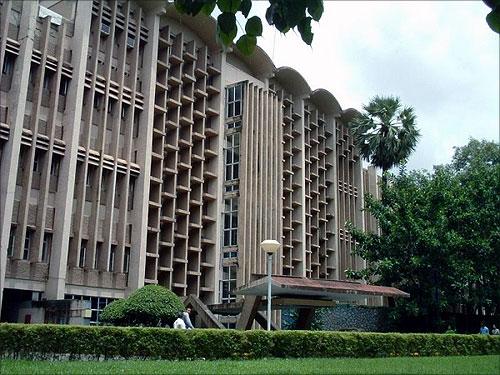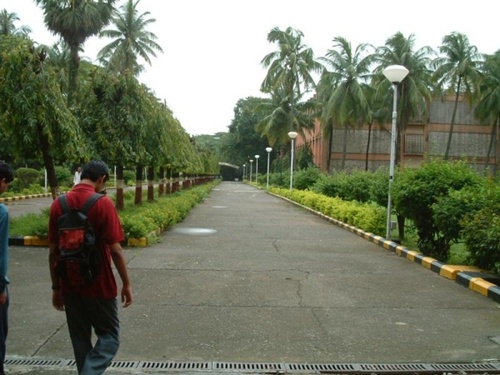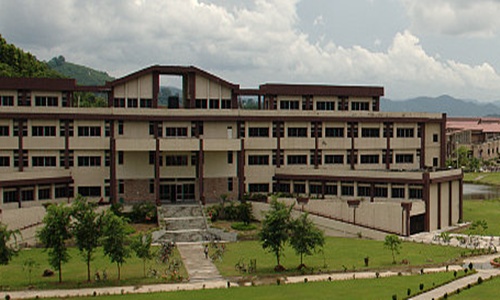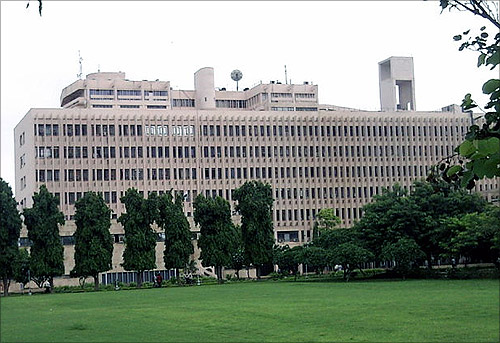 | « Back to article | Print this article |
IIT fee hike won't fix financial woes
The Indian Institutes of Technology (IITs) have raised the tuition fee by 80 per cent, from Rs 50,000 to Rs 90,000 per annum, the steepest so far after a four-year hiatus. Yet, this would do little to help the financial condition of these institutes.
IITs, 80 per cent of whose expenses are met through financial grants from the ministry of human resource development (MHRD), say tuition fee does little to even meet their operating expenses.
"Education provided at the IITs is highly subsidised. We spend around Rs 2.5 lakh per student per year, considering operating costs alone. We cannot expect student fees to take care of the entire expenses - capital plus operating costs," said Devang Khakhar, director, IIT-Bombay.
Click NEXT to read more...
IIT fee hike won't fix financial woes
IIT-Bombay's yearly expenditure is Rs 250 crore. The institute receives around Rs 200 crore in grants from MHRD and the rest is generated by tuition fee and other miscellaneous charges from students.
Salary and staff cost, including electricity and sundry bills, goes up by around 10 per cent each year at IIT-Bombay.
The IITs say with salaries and staff cost being fixed, they have to budget for expenditures beyond that. The marginal amount left is then used for other developmental activities on the campus.
At the IITs, the fee for about 22 per cent of students, from the SC/ST category, are fully waived. Also, up to 25 per cent of the students, whose parental annual income is less than Rs 4.5 lakh, are entitled to fee waiver. The remaining students pay the full fee.
Click NEXT to read more...
IIT fee hike won't fix financial woes
"The fee had to be increased. However, since the fee cannot be increased every year, the government outpay for us has to be adequate," said Gautam Barua, director, IIT-Guwahati.
IIT-Guwahati has an annual expenditure of Rs 110 crore, and nearly 15 per cent of this - about Rs 15-16 crore - comes from fees. Barua said with the increase, it would now contribute about 17 per cent.
In contrast, the top 20 private engineering institutes in the country charge anywhere between Rs 40,000 and Rs 1 lakh per student, per annum. These institutes, which increase the tuition fee every few years, say they might do so this academic year, too.
Click NEXT to read more...
IIT fee hike won't fix financial woes
BITS Pilani, for instance, is planning to increase the fee for its bachelors engineering programme from the present Rs 1.4 lakh to Rs 1.7 lakh for the next academic year.
The institute says it has to increase the fee to neutralise inflation. The fee in 2011 for the institute was Rs 1.25 lakh. It subsidises the programme by getting money from industry.
IIT fee, on the other hand, has always been low. When IITs began operations in 1953, they charged an annual fee of Rs 500 for their flagship undergraduate engineering programme.
In the past, IITs have revised their fee only twice - in 1998 and 2008. In 2008, IITs had doubled the fee for undergraduate courses from Rs 25,000 to Rs 50,000 a year.
Click NEXT to read more...
IIT fee hike won't fix financial woes
R K Shevgaonkar, IIT-Delhi's director, said, "IIT fee has always been low. Since it is a premier institution with good faculty and education, the fee should increase."
IIT-D's annual expenditure is around Rs 160 crore. About eight to 10 per cent of it comes from fees and the rest through grants from MHRD.
However, not all directors agree to the fee increase. "Students at IITs come from poor backgrounds. Manual labourers', masons' and taxi drivers' children come to us. This fee increase is a burden on them. I do not agree with it," said the director of a new IIT, requesting not to be quoted.
Another IIT director said until the government puts a financial model in place to support needy students, the fee increase should have been postponed.
With the government planning to gradually reduce the Budget outlay for IITs and help them self-sustain through fee income, fee hike might become a regular feature for these premier institutions, on the lines of other engineering institutes.





